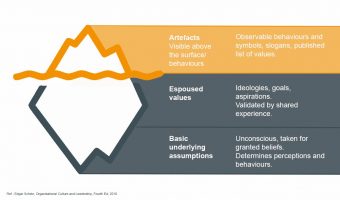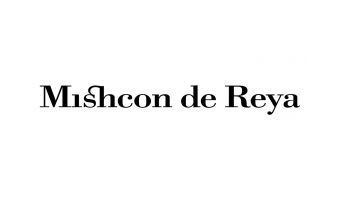News from in & around
The Clubhouse
Developing the Mind of the Leader
Want to know why some leaders succeed where others fail? Louise Chester of Potential Project unlocks the secrets of good leadership
This month, Harvard Business Review Press publishes our latest book, ‘The Mind of The Leader’. In it, we share research showing that 86% of leaders rate themselves as inspiring and good role models, but 82% of those they lead disagree. Only 13% of the global workforce is engaged, while 24% is actively disengaged. And 65% of US employees surveyed would forego a pay rise if it meant their leader would be fired. And this is despite over $46bn being spent globally on leadership training every year.
So, what makes for good leadership in the 21st century? Peter Drucker hit the nail on the head when he observed that, ‘You cannot manage other people, unless you learn to manage yourself first’.
Based on our extensive research with tens of thousands of leaders, like Drucker, we believe that leadership starts with ourselves and, more specifically, it starts with our mind. By understanding and leading ourselves more effectively, we can understand others and be able to lead them more effectively, and then we can better understand and lead our organisa-tions.
Bill George, professor of leadership at Harvard Business School and former CEO of Medtronic, teaches that self-awareness is the starting point of leadership. Self-awareness is the skill of being aware of our thoughts, emotions, and values from moment to moment. Through self-awareness, we can lead ourselves with authenticity and integrity — and in turn better lead others and our organisations.
This is borne out in our research with over 1,000 leaders in more than 800 companies in over 100 countries. We found that leaders at the highest levels tend to have better self-awareness than leaders lower in the hierarchy. This could be because stronger self-awareness accelerates the promotion process, or because we’re nudged toward enhancing our self-awareness as our leadership responsibility increases.
But self-awareness is not part of the standard curriculum in most management education programs. Many large-scale studies have found that leadership based solely on MBA-trained logic is not always enough for delivering long-term financial and cultural results, and that it is often detrimental to an organisation’s productivity. In one study, researchers compared the organisational performance of 440 CEOs who had been celebrated on the covers of magazines like BusinessWeek, Fortune, and Forbes. The researchers split the CEOs into two groups — those with an MBA and those without one — and then monitored their performance for up to seven years. Surprisingly, the performance of those with an MBA was significantly worse. Another study, published in the Journal of Business Ethics, looked at the results of more than 5,000 CEOs and came to a similar conclusion.
Fortunately for all of us, self- awareness can be enhanced. Simple steps can be taken to complement one’s traditional leadership skills with it:
Adopt a mindfulness practice
Research published in Nature Neuroscience has found that a short daily mindfulness practice leads to changes in the structure and function of the brain that enhance self-awareness. In our work with a global IT company from Silicon Valley, we found that even just five weeks of 10 minutes of daily mindfulness training enhanced the participating leaders’ self-awareness up to 35%.
Take regular breaks
When we come under pressure, we default to doing what we have always done. We resort to habitual thinking and behaviour. There is not much awareness in that, and little space for understanding your-self or the people you lead. Taking regular short breaks, of even just one minute, gets you out of ha-bitual thinking and behaviour. It provides you with space for awareness to arise and to see things clearer.
Pay real attention to what others say
When we are busy, our brains default to pattern recognition. It wants simplicity. And when others talk to you, your brain will automatically look for what it has heard before and eliminate what is new. That way you won’t hear others’ concerns and opinions, and you won’t have the finger on the cultural pulse. Be open. Be curious. And question your assumptions.
This article was originally featured in The Informer. To read the full magazine, please click here.


